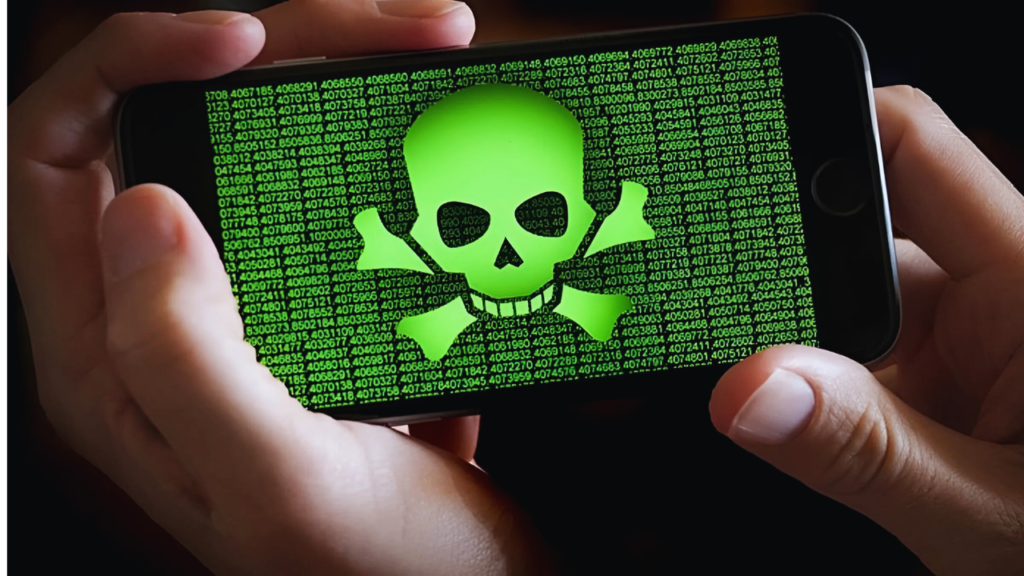Smartphones have become essential to our daily lives. From messaging friends to managing finances and shopping online, app make these tasks easier and more convenient. But not all apps are trustworthy. Some may look innocent but can pose serious risks to your privacy and security. Recently, cybersecurity experts have warned users about a growing number of “dangerous” apps that secretly steal data, spread malware, or cause other harm. It’s important to know which apps to avoid or delete to keep your device and personal information safe.
How Dangerous Apps Find Their Way Onto Your Phone
Even though Google Play Store and Apple App Store have policies to filter harmful apps, some manage to sneak past their security checks. Cybercriminals use clever tricks like fake reviews, fake developer profiles, or mimicking popular apps to lure users into downloading their malicious software.
These apps often ask for permissions that are unrelated to their function. For example, a simple flashlight app asking to access your contacts or microphone should be a red flag. Once installed with these permissions, the app can collect sensitive data or even listen in on conversations without your knowledge.
Examples of Dangerous Apps You Should Delete Immediately
Security researchers regularly publish lists of apps found to be dangerous. While some are removed after being reported, many users continue to keep them unknowingly. Here are some commonly flagged types of apps and examples that you should delete if found on your phone:
- Phone Cleaners and Boosters: Apps claiming to speed up your phone often do the opposite by running ads in the background or installing unwanted software. Examples include “Super Cleaner” and “Battery Saver Pro.”
- Photo and Beauty Apps: While these apps offer filters and editing tools, some secretly harvest location data, contacts, and other personal info. Apps like “Beauty Camera Plus” have been flagged.
- QR Code Scanners: Popular and widely used, but some “QR Code Scanner Free” apps have hidden scripts that collect data or show intrusive ads.
- Flashlight Apps: Simple tools that request too many permissions can be suspicious, such as “Flashlight Master,” which connects to advertising networks without your consent.
- File Managers: Apps that require broad access to your phone’s storage but do not have a legitimate purpose may allow hackers to steal data.
If you find any apps like these on your phone, it’s best to uninstall them as soon as possible.
Warning Signs That Your Phone Has Dangerous Apps
It’s not always obvious when an app is harmful. However, certain symptoms on your device may indicate the presence of malicious or poorly designed apps:
- Sudden Battery Drain: If your phone’s battery drains much faster than usual, an app running in the background might be the cause.
- Unusual Data Usage: A spike in mobile data consumption without a clear reason could mean an app is sending data to third parties.
- Sluggish Performance: Apps that run multiple processes behind the scenes can slow down your phone noticeably.
- Pop-up Ads and Notifications: If you see ads or notifications even when you’re not actively using an app, that app could be adware.
- Unknown Apps Installed: Sometimes dangerous apps download other apps without your permission, which should raise alarms.
- Privacy Alerts: Your phone may warn about apps accessing camera, microphone, or location too frequently.
If you notice these signs, review your installed apps and remove suspicious ones promptly.
How to Protect Yourself From Dangerous Apps
Keeping your phone safe from harmful applications doesn’t require advanced technical skills. Follow these straightforward tips to reduce risk and improve your phone’s security:
1. Download Apps Only From Official Stores
Stick to Google Play Store and Apple App Store. Avoid downloading apps from unknown websites or third-party stores, as these are more likely to host malware.
2. Check Permissions Before Installing
Always review the permissions an app requests before downloading. If a simple app asks for access to your contacts, messages, or microphone, think twice before proceeding.
3. Read User Reviews and Ratings
Check both positive and negative reviews to spot red flags. Be wary of apps with fake or overly positive reviews, which are common tactics by scammers.
4. Keep Your Phone and Apps Updated
Regular software updates fix security flaws. Make sure your operating system and apps are up to date to benefit from the latest protections.
5. Use Mobile Security Software
Consider installing trusted antivirus or security apps designed for smartphones. They can detect and remove malicious apps before damage is done.
6. Regularly Audit Installed Apps
Go through your apps every few weeks and uninstall those you no longer use or recognize. This simple habit keeps your device lean and safer.
What Are Tech Companies Doing About Dangerous Apps?
Google and Apple have ramped up their efforts to combat harmful apps on their platforms. Both companies use advanced machine learning to identify suspicious apps and remove them from the stores quickly. They also provide tools like Google Play Protect to scan apps on your phone regularly.
Despite these efforts, the number of new apps uploaded daily is enormous, making it difficult to catch every threat immediately. This reality means users must stay vigilant and not rely solely on platform protections.
The Bottom Line: Stay Alert and Stay Safe
Your smartphone holds much of your private life—photos, messages, banking info, and more. Allowing dangerous apps to run unchecked puts all of this at risk. By being cautious about what you install, regularly checking your phone, and deleting questionable apps, you can significantly reduce your exposure to cyber threats.
Remember, the best defense is awareness. Don’t wait for problems to appear—proactively clean up your phone and keep it protected. Your digital safety depends on it.
If you follow these guidelines, your phone will remain a helpful and secure tool rather than a source of frustration or risk.



















